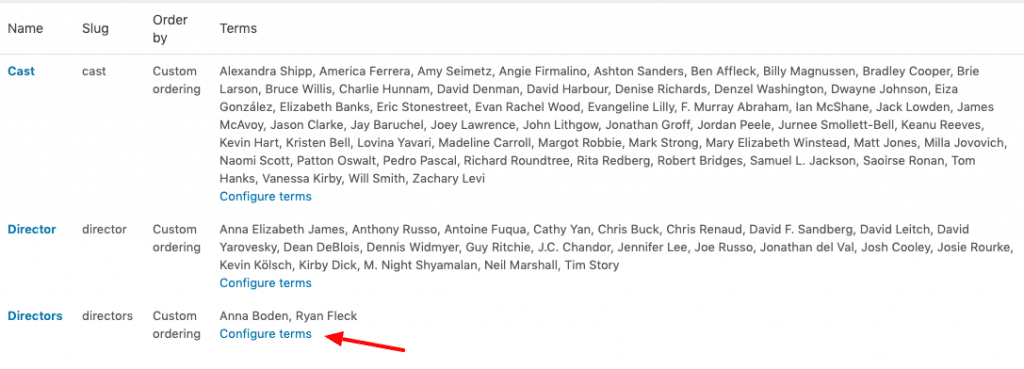Video categories
Video categories are the primary way to group Videos with similar features. You can also add subcategories if desired.
For example, if you sell video, you might have “sports”, “entertainment” and “action” as categories.
How to add/edit Video categories
Categories are managed from the Videos > Categories screen.
Similar to categories on your posts in WordPress, you can add, delete, and edit Video categories.
- Add a Name.
- Add a Slug (optional); this is the URL-friendly version of the name.
- Choose a Parent if this is a subcategory.
- Enter a Description (optional); some themes display this.
When you add a new video via Videos > Add Video, you can select this new video category from the list.
Alternatively, you can go to Videos > Add Videos directly, and select Add New Video Category.

The taxonomy is video_cat. And the filtering feature becomes AJAX-enabled for friendlier use once there are 100 categories.
Videos tags
What are video tags?
Video tags are another way to relate videos to each other, next to video categories. Contrary to categories, there is no hierarchy in tags; so there are no “subtags.”
How to add/edit video tags
Tags can be added similarly to adding video categories and work in exactly the same way as post tags. See the WordPress.org Codex for more information.
The taxonomy is video_tag.
Video attributes
What are video attributes?
A third and important way to group videos is to use attributes. “Filter Videos by Attribute” works based on attributes. If you add this widget to your sidebar, customers can filter videos in your site based on the attribute.
How to add/edit video attributes
Set global attributes
Go to Videos > Attributes to add, edit, and remove attributes.
Here you can quickly and easily add attributes and their terms.
- Add a Name.
- Add a Slug; (optional); this is the URL-friendly version of the name.
- Enable Archives if desired. If enabled, you can view a page with all videos having this attribute.
- Select a Default sort order. Choose between “Name”, “Name (numeric)”, “Term ID” or “Custom ordering” where you decide by dragging and dropping the terms in the list when configuring the terms (see below). “Name (numeric)” is relevant if the values are numbers. If you select “Name”, it sorts alphabetically with 1 and 10 preceding 2. If you select “Name (numeric)” it sorts based on numerical value.
Select Add Attribute.
The attribute is added in the table on the right, but without values.
Select the “Configure terms” text to add attribute values.

Next Add New “Attribute name”, where “Attribute name” automatically takes the name you gave the attribute in the previous step.
Add as many values as you wish. If you selected “Custom ordering” for the attribute, reordering your values can be done here.
Add global attributes to video
Add the created attributes to your videos.
Go to: Videos > Add Video (or edit an existing one).
Select the Attributes tab in the Video Data. There you can choose any of the attributes that you’ve created in the dropdown menu.
Select Add.
If you selected a global attribute that you previously created, you can select terms that you added previously.

Add custom attributes
Alternatively, add an attribute you only want to use for one video. This would only be ideal if you have a video with unique attributes.
Go to: Videos > Add Video.
Select the Attributes tab.
Select Custom video attribute in the dropdown and follow the above steps.